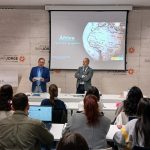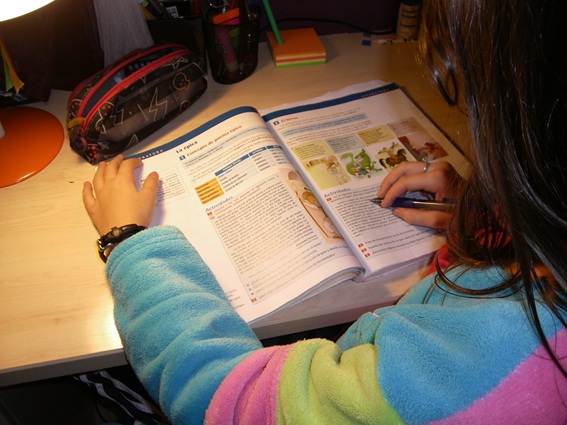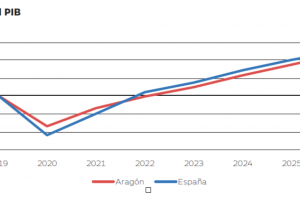According to a survey from the Luis Vives Foundation, in Spain there are between 180,000 and 200,000 gypsies with the age of studying at elementary school.
In Aragón, the entire gypsy population is close to 21,000 people, of which about 40 percent are under 18. Almost 30 percent of young gypsies under 16 don’t go to school.
Although they share the same language and city as the rest of the residents, there are a lot of differences between the way of life of gypsies and others. These cultures are even the opposite in some points, like education for instance. Many gypsies think that elementary education is not important for the personal development of children. In Aragon the law says that every child under the age of 16 must go to school. However, according to the survey from the Luis Vives Foundation, close to 30 percent of gypsy students don’t go to school, they don’t justify their absence and so they become absence students. When this happens the school must inform the authorities, who begin a legal investigation to know the situation of the family where the children live and why they don’t go to school.
Andrés Oliván is an elementary school in Zaragoza. In 2010 eight new gypsy students arrived. Mariana Mombiela, the school’s principal, says that seven of the children have been adapted to the school without problems, but she admits that the absentee level of one of them is 33 percent, so he is an absence student.
Inés García finished her studies in this centre last year. She says that they have a good relationship with the rest of the students, but they were always joking around.. Also, Inés remembers that they usually didn’t do their homework.
As this student says, the level of gypsy students usually is under the average. As Mombiela thinks, in most of the cases the difference between these students and the others has the origin at home and the family, where parents usually don’t help them study and improve their marks.
Carmen Jimenez is a 35-year-old gypsy who has six children. They live with other gypsy families in abandoned houses that are at risk of falling down at any moment. She takes her children to school every day and says that when they finish their lessons and get home, they have something to eat and play. After dinner they do their homework. None of her children has ever said what they want to be when they grow up.
Mombiela is not only the principal. She is also an English teacher, so she knows very well what these children are like in class. She says that they normally need special attention because their level is very low. They don’t pay too much attention to teachers and do not always follow the rules. Every teacher tries to help them and they usually explain to them that their future depends on what they do during these years.
To avoid the low level in education, many schools offer special lessons to reform this kind of student’s level. However, Mombiela’s professional point of view these lessons are not the definitive solution. She believes that the only way to learn is going every day to school, doing their homework and studying.
The biggest problem is that the children show interest in studying, but their families don’t support them. Some children don’t dare to open their bags at home because they are afraid their neighbours might steal and break their school material. This is why many gypsy parents ask the schools with tablet PCs to let their children keep them in class instead of taking them home because if they break them they have to pay for them.
Zaragoza’s city council tries to help with the integration of these children offering economic aid to their families. Thanks to this many children can eat in the school or have access to buy things such as pencils and paper.
Texto y fotografía: Marta Plano Querol, alumna de 3º de Periodismo de la Universidad San Jorge



















Comentar